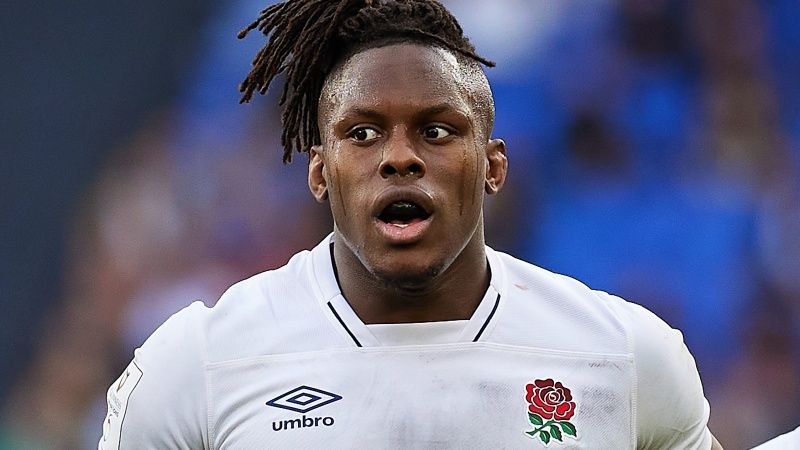20 years on, Ireland are hoping to reset a Six Nations trend.
Nearly as storied as the lack of progression to the last four in a World Cup,
writes Brian Strahan, is that Ireland have never won a Five or Six Nations the following year. We will know by late on Friday (February 2) if that trend looks more likely or not to continue.
After exiting at the hands of France in Melbourne in 2003, 20 years ago the Irish faced the French in the opening game of the following Six Nations in Paris on February 14th , 2004. It wasn’t to be, and while Ireland would finish second behind the French and win the Triple Crown, Eddie O’Sullivan’s team were overrun in Paris.
Ireland bounced off France at most endeavours to find pores in their defence, and negativity at the loss of a generational figure in Brian O’Driscoll proved well founded. Here’s hoping another generational absence – this time a permanent one – doesn’t spring a similar outcome.
Nicolas Brusque, Vincent Clerc and the late Christophe Dominici were in rare form. In contrast, Ireland lacked speed and imagination. It was not quite a St. Valentine massacre, but the hurt from the World Cup wasn’t allayed and the hurt would last a little longer.
WILL CONNORS & LINDSAY PEAT ON HOUSE OF RUGBY

Six Nations excitement ramps up
...
Maro Itoje, a second-row colossus, technically adroit and with all that parked, a fine individual too by all accounts. Socially aware, evident in his campaigning for free broadband and laptops for children from disadvantaged backgrounds.
But even Itoje isn’t immune from falling into the set trap of cliché ridden quotes when copy space is needed. But, he does, unsurprisingly for someone of his technical prowess, add in some dexterity to his soundbites.
Speaking last week from England’s 6 Nations training camp in Costa Brava, on his willingness to stay in the reckoning for The Lions tour in 2025 and England’s next World Cup, he compared his experience at the World Cup as akin to “a drug that is hard to stay away from. I would love the opportunity to do that again.” Who wouldn’t?
Itoje, however, gets more descriptive. On the dream of playing for his country, he goes on to say that lining out in white is an “opportunity for me to shine, to fully express myself and to
express my competitive juices.” Oh my.
In fact, if he was to shun this honour; “a part of me would be eaten up inside.” He’s here to stay, so.
Louis Rees-Zammit’s bowing out of rugby in all its forms stands in contrast to Itoje’s want to stay embedded in the game. Warren Gatland must be considering to himself, what else Welsh rugby can throw at him since his return a little over a year ago.
2023 saw threats of strike action during the Six Nations itself, executive-level scandal and resignation, and unenviable financial troubles. 2024, however, is attempting a “hold my beer” moment. If Gatland, Welsh rugby and anyone with even a sliding interest in the sport thought it was a high-risk move, Rees-Zammit’s participation in the International Pathway Program 10-week training camp, in order to secure a pre-season roster with an NFL team, holds promise if it pans out. But it’s far from a sure thing.
The 2023 version pulled in 38 players for the 10-week training camp, overseen by scouts. Eight players made the cut last year. The odds are not impossible, but it’s not a lock. Rees-Zammit is joined by the triumvirate of Gaelic Football goalkeepers - Monaghan’s Rory Beggan, Wicklow’s Mark Jackson and Down’s Charlie Smith – as well as former Connact rugby player Darragh Leader.
It’s rugby’s loss for now, but who would deny a young athlete such a unique opportunity?
Opportunity knocks for Ireland and France to expunge at least some of their World Cup heartbreak in Marseille on Friday evening. Maybe it’s not a bad thing that the home of their pain, the Stade de France, is undergoing preparatory work ahead of the Olympic games - seeing France take their Six Nations show on the road.
Stade Velodrome, or to give it its official, commercially driven name, the Orange Velodrome Stadium Marseille, doesn’t have much to tie Irish Rugby to the Ligue 1 stadium. Although football lovers of a certain vintage will remember Tony Cascarino’s resurgent spell during a chaotic time there, when with Olympique Marseille in the mid 1990s.
But then again, it doesn’t have much to tie French rugby to it either. Although its status as an ‘elite’ UEFA stadium makes it and its capacity of 67,000, a decent alternative to the Stade de
France.
As the name hints, its genesis ties in with cycling and as a velodrome, it became home for 10 final stages of the Tour de France and hosted the World Track Cycling Championships. When France hosted the 1984 European Championship, it was modified and the cycling tracks ultimately were no more.
All part of the back story, all underpinning a potential narrative when two teams looked to make it the home of where the road to redemption started to pave itself.
*Join SportsJOE’s WhatsApp community for first access to news, sports updates, and quizzes. Click on this link to receive news and the latest sports headlines directly to your phone. You can leave the group at any time.
Related articles:



